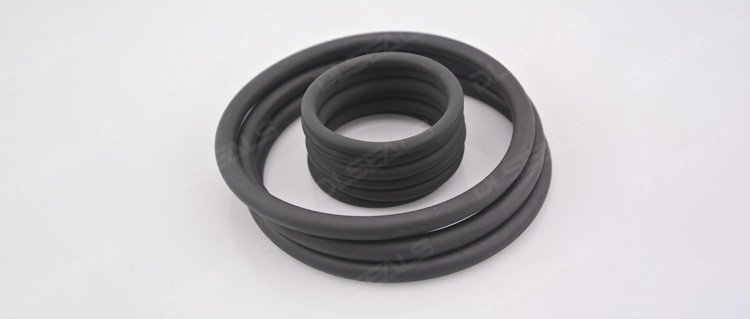News
A2024-04-15

Nitrile rubber oil seal, also known as Nitrile rubber oil seal, is a common sealing material widely used in various engineering and mechanical applications. This article will introduce the advantages and disadvantages of nitrile rubber oil seals to help you better understand its characteristics and applications.
advantage:
Outstanding oil resistance:
Nitrile rubber oil seals have excellent oil resistance and are suitable for various lubricating oil and fuel environments. It can effectively prevent oil leakage and extend the life of mechanical equipment.
Good elasticity:
Nitrile rubber has high elasticity and can effectively adapt to irregular sealing surfaces to ensure good sealing results.
Cost-effectiveness:
Nitrile rubber is a relatively inexpensive sealing material, making it cost-effective in a variety of applications. It provides reliable sealing performance without putting an undue strain on the budget.
Easy to process and customize:
Nitrile rubber is easy to process and can be customized to meet the needs of different applications. Whether it is size, shape or hardness, it can be flexibly adjusted.
Commonness and availability:
Nitrile rubber is a widely used sealing material that is easily available and commonly available in the market and can be obtained in a short time.
shortcoming:
Limited high temperature resistance:
Nitrile rubber has poor performance in high temperature environments and is prone to softening and loss of elasticity. Therefore, nitrile rubber oil seals are not suitable for use in high temperature applications.
Not resistant to ozone and UV rays:
Nitrile rubber is sensitive to ozone and UV rays and prone to aging and cracking, making it unsuitable for use in outdoor exposure environments.
Limited chemical resistance:
While nitrile rubber has good resistance to many lubricants and fuels, it has limited resistance to certain chemicals. In certain chemical environments, other sealing materials may need to be considered.
Not suitable for high viscosity liquids:
Nitrile rubber oil seals may encounter some problems in applications with high viscosity liquids because it may not be elastic enough to effectively seal these liquids.
In summary, nitrile rubber oil seals have many advantages, including oil resistance, elasticity, cost-effectiveness, etc., making them widely used in a variety of applications. However, it also has some limitations, such as not resistant to high temperatures, not suitable for high-viscosity liquids, and not resistant to ozone. Therefore, when selecting sealing materials, trade-offs need to be made based on the requirements and environment of the specific application.
[DLSEALS kindly Reminder] Sealing issues? Turn to DLSEALS! As a sealing component manufacturer, we specialize in customizing sealing components, providing a full range of services from design, research and development, production, testing, and more. If you have more information you'd like to know, feel free to contact us directly. DLSEALS's product experts are dedicated to serving you!